Noticias
-
20/06/2024 - 15:00 UTC +02:00Iberdrola will pay a final dividend of at least €0.348 per share SCHEDULE OF THE FINAL DIVIDEND 2 July 2024 Communication of the number of free allocation rights required to receive one share and the gross final dividend amount per share. 3 July 2024 Capital increase announcement. Last day on which shares entitled to participate in the dividend are traded. 4 July 2024 Date from which the shares are traded without the right to participate in the "Iberdrola Flexible Remuneration" system. Also known as ex-dividend date. Beginning of the common election period and trading period for free allocation rights. 17 July 2024 End of the common election period and the trading period for free allocation rights. 29 July 2024 Payment of the Final Dividend to shareholders who have opted to receive cash through this option. 31 July 2024 Expected date for the start of trading of the new shares. READ MORE
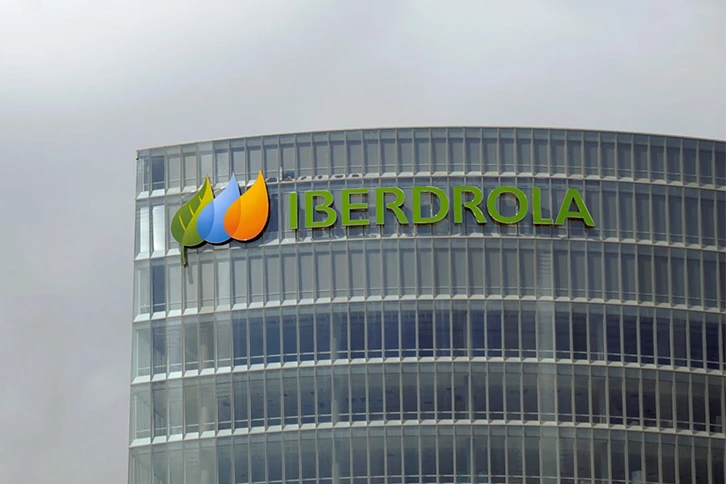
-
19/06/2024 - 13:16 UTC +02:00Iberdrola presents Carbon2Nature to reduce the global carbon footprint through nature-based solutions Iberdrola has presented Carbon2Nature at an event held in Jaraíz de la Vera (Cáceres). This company was born a year ago to reduce the global carbon footprint through nature-based actions, improving biodiversity and promoting a sustainable economy in which nature is a key lever for creating sustainable value. Since its launch, the company contiues to advance in its mission to capture and sequester more than 60 million tonnes of CO2 in natural sinks, thanks to the development of a global and diversified portfolio of conservation, management and restoration projects in various ecosystems. To finance its proyects, the company uses carbon markets, among other tools, and applies an approach that guarantees the highest standards of integrity, long-term positive impact and is committed to innovation and collaboration. In one year, Carbon2Nature already has fifteen projects under development and over 40 under study in ten countries, with a focus on Spain, Brazil, Mexico, Colombia and Australia. Its strategy focuses on forestry projects on reforestation and sustainable management, with more than eleven on-going projects in Spain covering an area of over 2,500 ha, and another in the Colombian Amazon covering more than 5,000 ha. The company is also positioning in projects in marine ecosystems known as blue carbon projects, developing a mangrove restoration project in Mexico and a pioneering pilot project for planting Posidonia meadows in Spain. In its line of innovation, it also has an on-going pilot project to avoid methane in livestock farming in Spain. In total, its portfolio of on-going projects involves nearly 2 million trees planted or to be planted that will capture more than 800,000 tonnes of CO2. In addition, there is a large portfolio under negotiation that would involve the planting of more than 20 million trees and the capture of more than 14 million tonnes of CO2. "La Vera Carbon2Nature: Planting of more than 700,000 trees on 1,499 ha of Spain dehesa in Jaraíz de la Vera. In Extremadura, the "Vera Carbon2Nature" project will be carried out in the Dehesa Boyal de Jaraíz de la Vera in the Cáceres region of La Vera. This is the largest forest of public-private collaboration on public land in Spain, and the first to be carried out in the long term (50 years). The project will manage 1,499 ha of Spanish dehesa and will involve the planting of over 700,000 trees on 467 ha affected by degradation processes, and will capture around 186,000 tCO2. The goal is to regenerate and conserve a highly valuable dehesa ecosystem thanks to an innovative forestr transformation plan. This project includes the planting of holm and cork oaks, the introduction of a transitional species (Pinus Pinaster) and other accompanying species to enrich biodiversity (hawthorn, cornicabra, ash, chestnut and Pyrenean oak...). And all this, while creating job opportunities and preserving traditional uses of extensive livestock farming and other uses (hunting, recreational, cultural), thanks to a phased planting design. Agustín Delgado, Iberdrola´s Global Director of Innovation and Sustainability, highlighted this project as an example of Carbon2Nature's savoir-faire "recovering our ecosystems and even enhacing them through innovation and long-term sustainable management, with great projects that add value. In this case, over 700,000 trees will be planted in collaboration with the administration, under a unique approach of sustainability and quality, benefiting neighbouring communities, allowing them to co-exist with traditional forest uses". Carbon2Nature project presentation event in La Vera was attended by the Presidential Adviser of the Regional Government of Extremadura, Abel Bautista, the Adviser of Forestr Management, Ignacio Higuero, the Mayor of Jaraíz de la Vera, Luis Miguel Núñez, as well as a large representation of mayors from the northern regions of the province of Cáceres. Carbon2Nature Carbon2Nature is a company wholly owned by Iberdrola and follows the energy company's commitment to a sustainable model based on two priority objectives: achieving zero net emissions in all scopes by 2040 and a net positive impact on biodiversity by 2030. Thus, with a global vision, but focusing on the local level, the company is developing long-term conservation, restoration and sustainable nature management projects with a high climatic, environmental and social impact. These projects generate "high quality carbon credits" that Carbon2Nature will make available to its clients to support them on their path to net zero emissions, within its ambitious decarbonisation strategies. The action plan focuses on regions and countries where Iberdrola is present and where nature-based solutions have significant potential, with a focus on Latin American countries such as Brazil, Mexico and Colombia, as well as Australia, Spain and other European countries such as Portugal, the United Kingdom and Sweden. Projects are governed by the triple I approach: integrity, impact and innovation. All will be certified against internationally/nationally recognised quality standards. These will validate their contribution to climate change, biodiversity enhacement, local communities' well being and other Sustainable Development Goals (SDGs). Iberdrola launched Carbon2Nature through its start-up programme, PERSEO, which has helped the utility to implement innovative solutions to promote renewables, decarbonisation and electrification of the economy, digitisation of grids and efficient storage and care for the environment. READ MORE
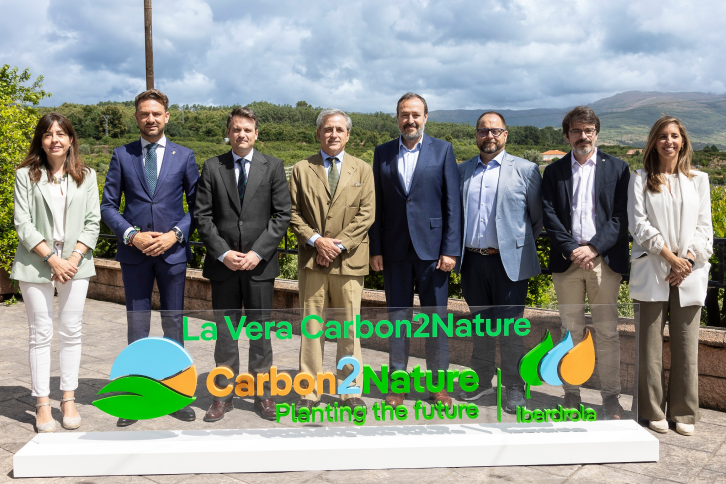
-
15/06/2024 - 09:45 UTC +02:00Iberdrola obtains final environmental authorisation to build Portugal's largest wind farm Iberdrola obtained the final environmental approval from the Portuguese government to build the country's largest wind farm. The Company is thus taking a step forward in its expansion in the neighbouring country, promoting the transition towards an economic model based on decarbonisation through renewable energies and independence from fossil fuels − which will enable greater energy security and autonomy with clean and local production. The new wind farm will have a capacity of 274 MW, equivalent to the consumption of 128,000 households, and will be built in the town of Vila Real, in Braga. It is the largest hybridisation project in the country, designed to make use of the grid injection point already built at the Tâmega hydroelectric complex, and the first to combine wind and hydro power. The Company obtained the second and last favourable environmental authorisation for the Tâmega Eólico project. This is the so-called DCAPE (“Decisão da conformidade ambiental do projeto de execução” – Decision of Environmental Conformity of the Execution Project). This step involves the approval by the Portuguese environmental agency, APA (Agência Portuguesa do Ambiente) of the construction project, complying with all the conditions and measures included in the favourable Environmental Impact Statement that Iberdrola obtained in March 2023. In this way, the energy company continues with the processing of the installation. The next step will be to apply for a production licence from the Portuguese Directorate-General for Energy and Geology. Iberdrola's objective is to obtain all permits and begin construction in early 2025. Cutting-edge technology Incorporating wind power to the Tâmega hydroelectric complex increases the contribution of clean, cheap and competitive energy to the electricity system of these facilities and ensures the maximum amount of green energy supply originally authorised for each project, for as long as possible. By having two technologies capable of alternating, dependence on changing environmental conditions and limitations due to possible lack of resources such as wind are significantly reduced − facilitating more stable and efficient renewable production without overloading the electricity infrastructure Hybrid generation plants use the same grid connection point and share infrastructures, such as the substations, which in this case will require the construction of an extension that was already designed in the initial project, and the evacuation line for the electricity produced. In addition, they are located on land that was already used for renewable generation and allow for common roads and facilities for the operation of both technologies. All this results in a much lower environmental impact than two independent plants would have had. Coexistence with the environment Iberdrola will implement various environmental measures on the ecosystems in the area of influence of the wind farm. Furthermore, given the proximity of both projects, some of the measures already successfully implemented in the Tâmega Electroproduction System will be continued, such as the planting of native species and actions related to forest management in the surrounding forests. Measures that favour fauna will also continue, such as pasture plantations, plantations of species with fleshy fruits, the creation and recovery of ponds and the installation of nesting boxes for bats. In addition to the biological and archaeological monitoring during construction, a series of Ecological Systems Monitoring Programmes (birds, bats, wolves, flora and habitats) will be implemented to control possible impacts and to define new enhanced measures. Tâmega hydroelectric project The Tâmega hydroelectric project is one of the largest hydroelectric projects undertaken in Europe in the last 25 years. It consists of three power plants: the Alto Tâmega Hydroelectric Power Plant, with an installed capacity of 160 MW; the Gouvães Pumped Storage Power Plant (880 MW); and the Daivões Power Plant (118 MW), the latter two will be operational from 2022. The three plants will have a total installed capacity of 1,158 MW, which will represent an increase of 6% of the total installed electrical power in the country. The complex will be capable of generating 1,766 GWh per year, enough to meet the energy needs of neighbouring municipalities and the cities of Braga and Guimarães (440,000 households). In addition, this large renewable infrastructure will have the capacity to store 40 million kWh − equivalent to the energy consumed by 11 million people during 24 hours in their homes. Tâmega will eliminate the emission of 1.2 million tonnes of CO2 per year and diversify production sources − avoiding the import of over 160,000 tonnes of oil per year. This project will also promote economic activity and employment in the region, since during the entire construction phase it is estimated that up to 3,500 direct jobs and 10,000 indirect jobs will be created − 20% of which come from neighbouring municipalities − through over 100 suppliers, 75 of which are Portuguese. The Tâmega Hydroelectric Complex is one of the largest energy initiatives in the history of Portugal, with a total investment of over €1.5 billion and an installed capacity of 1,158 MW, as well as an energy reserve of 40 million kWh − equivalent to the energy consumed by 11 million people during 24 hours in their homes. READ MORE
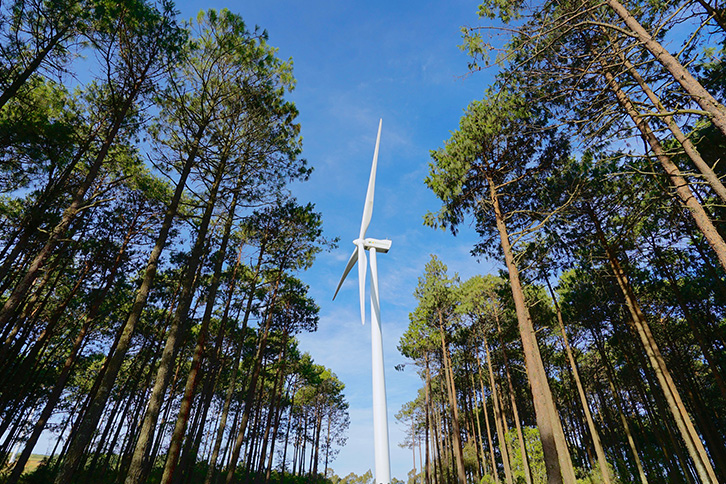
-
13/06/2024 - 12:24 UTC +02:00Iberdrola promotes the application of Artificial Intelligence in its electricity grids through its startup programme Iberdrola's main growth driver between 2024 and 2026 will be electricity grids. They are the backbone that connects demand, both industrial and domestic, with generation through infrastructures. Electrification is unstoppable, both for companies, which must follow their roadmap towards decarbonisation, and for individuals, who are changing their energy models based on fossil energy sources, such as gas, to others based on renewables, such as electric vehicles and heat pumps. Self-consumption and its decentralisation also play a key role in designing electricity grids. In this context, Iberdrola, through its startup programme Perseo will promote digital solutions that enable the inclusion of machine learning methods or algorithms in its grids to model new demand and generation scenarios, through self-consumption, storage and access flexibility. The aim is to forecast their operational behaviour and, with this, plan their investments to guarantee this network capacity, assuming a reasonable demand for electricity distribution. Iberdrola's potential allies must take into account current electricity generation and self-consumption, electricity storage, new emerging demands, electric mobility, heat pumps and the decarbonisation of current industrial processes, among others. They must also be aware of the new demands in the medium and long term: digital electrification, new consumption and the generations associated with technological developments and emerging business models, such as Artificial Intelligence or green hydrogen. Those companies that enter the challenge will be eligible for a prize consisting of the signing of a collaboration agreement with Perseo or any other Iberdrola company, which will assume the costs of the activities and provide the winner with technical support. The selected project will be developed in collaboration with technical specialists from Iberdrola's Networks area. Furthermore, the winner will be directly included in the process of joining the Global Smart Grids Innovation Hub, as an additional collaborator that will be able to benefit from the services, activities and resources made available at the GSGI Hub. If the trial is successful, Iberdrola could offer the participant the opportunity to scale the solution with commercial agreements. In addition, Perseus may consider investing in the participating company or in the winning solution. The key to electrification Iberdrola's plan is to allocate €21.5 billion to networks - two-thirds of the total investment planned from 2024 to 2026 - to increase these assets to €54 billion by the end of 2026 from the current €43 billion. The amount previously mentioned will be used to expand and strengthen networks in the United States, the United Kingdom, Brazil and Spain. For the company, electrification is unstoppable, given the need to increase energy self-sufficiency, decarbonisation, efficiency and competitiveness of companies. The driver of energy startups Since its creation in 2008, PERSEO has invested over €200 million in startups that develop innovative technologies and business models, focusing on those that improve the sustainability of the energy sector through greater electrification and decarbonisation of the economy. The programme has focused its actions on the analysing business opportunities and collaboration with tech startups and emerging companies around the world. Through PERSEO, Iberdrola launched the Venture Builder programme in 2020 with €40 million for the creation of new business models aimed at supporting electrification in sectors that are difficult to decarbonise and the development of circular economy solutions, among others. READ MORE
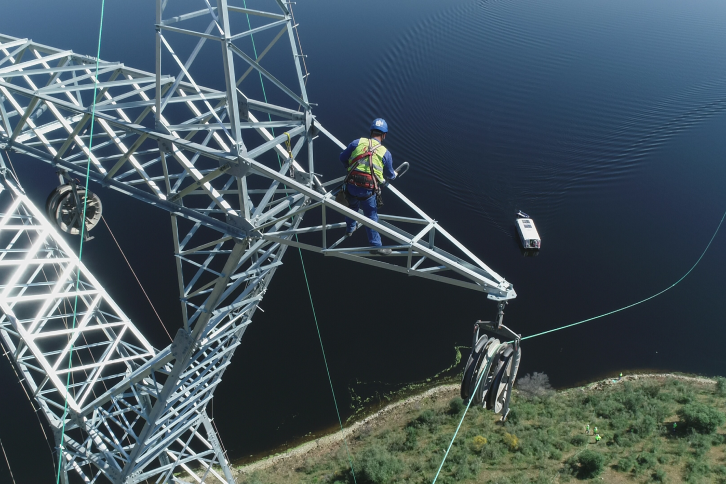
-
12/06/2024 - 16:54 UTC +02:00Over 20 Governments meet at Iberdrola to promote transport electrification Over 20 Governments, mostly from Europe, America and Africa, and more than 50 other organisations from around the world gathered today at Iberdrola's headquarters to celebrate the annual Drive to Zero conferences − a global alliance for decarbonising heavy road transport, of which the Company has been a member since 2022. The conference sessions, which will last until next Friday, are being held as a global meeting point to promote decarbonisation and the search for sustainable transport solutions in different countries and organisations. During the different sessions, the opportunities and challenges of electrifying transport will be discussed in order to leave behind the dependence on fossil fuels and accelerate the deployment of clean energies worldwide to achieve the transition to an economic model based on renewable generation . Europe is the fastest warming continent and its temperatures are rising at about twice the global average. Zero-emission medium and heavy-duty vehicles are now a reality and are key to solving the climate crisis. The way is promoting healthier air and offering economic and operational benefits for logistics operators and for the countries themselves − achieving independence from fossil fuels. Drive to Zero is an initiative of the Dutch Government and CALSTART/Drive to Zero, a Californian sustainable transport advocacy organisation. Its members include nearly 40 countries, as well as cities, regions, non-governmental organisations, companies and universities. Drive to Zero promotes 30% of new heavy-duty vehicles to be zero-emission by 2030, and 100% by 2040 to achieve a net zero emission fleet by 2050. These conferences aim to deepen the collaboration and cooperation of its members to achieve these goals. Road to electrification Road transport is essential to global society as it enables the transport of people, goods and products, but it is responsible for approximately 25% of all greenhouse gas emissions worldwide, according to the International Energy Agency (IEA). Furthermore, road transport also pollutes the air we breathe. Zero-emission mobility is a key part of the energy transition: developing green transport is essential to achieve decarbonisation and mitigate the consequences of climate change and pollution. In the logistics sector, electric trucks present a technologically and economically viable solution − and are the most efficient and cleanest alternative to move towards a greener future. The electric motor will help to reduce air pollution and noise levels, which will contribute to improving the health of citizens. It is the only technology based on renewable energies that is also efficient, quiet and achieves zero emissions. In order to accelerate the transition to zero emissions in heavy road transport and towards the decarbonisation of a decarbonised economy independent of fossil fuels, Iberdrola is part of various organisations and last year signed an agreement with AEDIVE, the Business Association for the Development and Promotion of electric mobility , to create an alliance to strengthen the electrification of the heavy vehicle sector in Spain. Among the Company's milestones in the field of heavy transport is the development of the Mediterranean Corridor for high-power electric charging of heavy vehicles − with the most powerful hub in southern Europe. In addition, together with Disfrimur, over 160 charging points for electric trucks will be installed in the logistics bases that the transport company has in the country. Through the Iberdrola | bp pulse alliance, Iberdrola will launch the first MCS (Megawatt Charging System) charger for heavy electric vehicles in southern Europe, which will have a capacity of over 1,000 kW. READ MORE
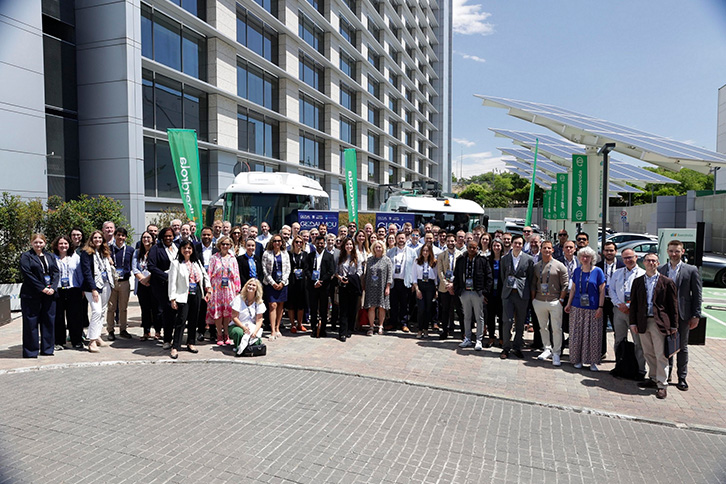
-
12/06/2024 - 09:00 UTC +02:00Iberdrola receives Ofiso's award for the best track record in sustainable finance The Spanish Observatory for Sustainable Financing (Ofiso) wanted to highlight Iberdrola's efficient working practices, thanks to its pioneering vision in sustainable finance. Iberdrola has consolidated its position as a benchmark in sustainable finance, being the world's first private group to issue green bonds, after becoming in 2014 the first Spanish company and second in the world to issue a bond of these characteristics. The Group currently has around €21 billion of green bonds outstanding. In the banking market context, the Company also signed the first green loan for an energy company in the world in 2017, amounting to €500 million. That transaction was followed by various bank loan operations, with multilaterals and financing of green projects, as well as credit lines linked to sustainability criteria. The Iberdrola Group currently has operations for close to €60,000 billion in sustainable finance, both in green format, with the use of funds for specific investments and with operations linked to sustainability criteria. The leadership shown in sustainable finance has been made possible by the Group's pioneering strategy in its investments in supporting the energy transition, which began more than 20 years ago. This financial strategy (ESG+F) is strengthened by a new strategic plan, in which the Company intends to invest €41 billion between 2024 and 2026. The plan aims to drive the decarbonisation and electrification of the economy. The Spanish Observatory for Sustainable Finance grants these annual awards to financial institutions, companies or institutions in recognition of excellence in the field of sustainable finance. The objective of this Observatory is to give visibility to responsible financial solutions, adopting best practices as well as influencing and giving visibility to financial industry professionals. READ MORE

-
10/06/2024 - 14:22 UTC +02:00Ignacio Galán holds a meeting with Iñigo Urkullu in Bilbao Ignacio Galán , the Executive Chairman of Iberdrola, held a meeting at Torre Iberdrola (Bilbao) with Iñigo Urkullu, the acting Lehendakari (head of the Basque autonomous government) − who will leave the presidency of the Basque Government in a few days. The meeting took stock of Euskadi development and Iberdrola's contribution to this region in the last 12 years. At the end of the meeting, the Torre Iberdrola employees, who met the Lehendakari, honored him with a standing ovation. READ MORE
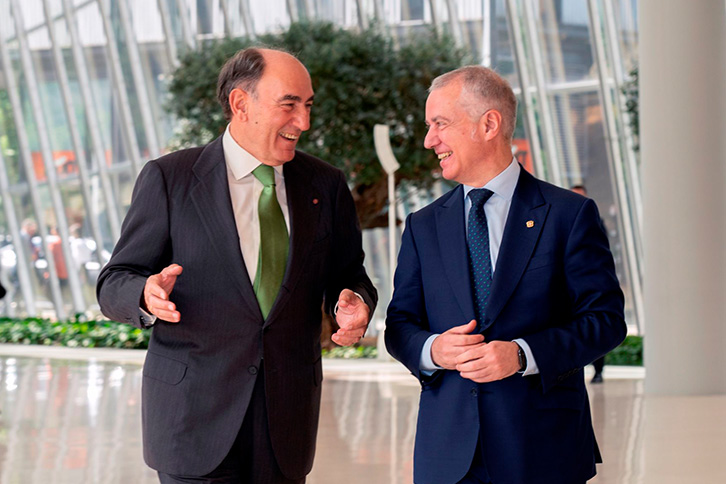
-
07/06/2024 - 15:00 UTC +02:00Iberdrola recognised for its promotion of women's football at the UK's Women's Football Awards Iberdrola, through its UK subsidiary ScottishPower, has been recognised as the Best Breakthrough Business at the annual UK's Women's Football Awards. ScottishPower achieves this recognition nine months after announcing its agreement to promote women's football in Scotland. You can read the full story in the ScottishPower Newsroom. READ MORE








